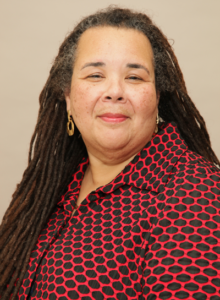
Improvisation As Formation Goal
We teach with aspirational dreams for our students. The right-now challenge of student formation is that we have never seen our world just-so. We are intellectual, faith pioneers in the malaise and luxury of the 21st century. This digital age has fashioned for us a threshold into terrain that is yet to be mapped, but for which our students must navigate. As dreamers, what kinds of new compasses will we provide for students so that they might successfully traverse this liminal moment?
There is still merit in the old tried-and-true roles of religious leadership. The roles of minister, sage, prophet, priest, and teacher yet resonate. At the same time, these roles need new life breathed into them. Simple replication and duplication of these vocational identities will be less than adequate moving forward into the 21st century. Knowing we are forming students for a time for which we have so little fore-knowledge, I want to suggest we teach toward the skills of improvisation as a critical tool of resilience.
It is a misnomer to think that improvisation is the product of idleness, laziness, lackadaisical-ness or carelessness. When an artist or athlete “makes something up on the spot,” and it is  successful, that which is composed in the moment has been informed and shaped by years of training, discipline, as well as heart, sweat, and tears. Great masters, having achieved proficiency through tireless efforts, dedicate themselves as students perusing the ability of improvisation. Those who know improvisation know that it requires complete focus, high technical skill, and resolute routines of practice so that in the precise moment you can let go of all the training and dedication for something spectacular and needed.
successful, that which is composed in the moment has been informed and shaped by years of training, discipline, as well as heart, sweat, and tears. Great masters, having achieved proficiency through tireless efforts, dedicate themselves as students perusing the ability of improvisation. Those who know improvisation know that it requires complete focus, high technical skill, and resolute routines of practice so that in the precise moment you can let go of all the training and dedication for something spectacular and needed.
While being highly disciplined, moments of improvisation are deeply spontaneous and personal. The work of improvisation is the courage to expectantly surrender to something higher, deeper, and more sacred. These moments usually have an ephemeral quality. It is the self seeking to be self-less. Improvisational practices desire that which is accidental - the mistake, the illogical, the impossible, the happenstance - hoping to feel the muse in new and extra-ordinary ways.
More than anything, improvisation requires courage. Dr. Vincent Harding, historian, activist, and sage asked this profound question: Can courage be taught? My hunch is courage can be taught if improvisation can be learned. Now the question becomes: Can we teach improvisation?
I suspect if we begin to do formation with improvisation in mind, new and different kinds of people will become who we think of as “good” students. Students who can take what we give them and make it their own will excel. Assignments will have to move beyond regurgitation, comprehension and analysis. Instead, assessment will praise and regard synthesis and generativity. Our curricular revisions will not be about the preservation of tradition, but instead about the re-imagining of tradition with a new zeal for our own agency. New faculty hires will need to include in their philosophy of teaching essay the ways in which their own teaching identity is informed by the arts and creativity. Administrators, rather than tasked as managers, will be chosen for their ability to inspire, create and give permission to risk greatly. School buildings will retro-fit traditional classroom spaces into art studios, dance theatres, music laboratories, kitchens, and gyms.
If we are successful, required classes will dramatically differ between different semesters because the course experience will shift depending upon the inspiration brought to bear upon the content of the course by the student constituency and their work in the moment. No longer will teachers be able to deliver stale, information-laden lectures and facilitate scripted conversations coaxing students toward a fixed point as the collective destination. Classes with improvisation as a learning outcome will be without scripts, with learners learning by directing themselves, writing their own content narratives and interacting with each other all at the same time without previous planning. The class will go as far and as deep as the students will.
And so we ask:
Since improvisation is the know-how of musicians, athletes, actors, cooks, grandparents, surgeons, etc., what are the habits and practices of the best improvisers which might strengthen teaching?
Michael Jordan, professional basketball player known for his improvisational skills, said, “Get the fundamentals down and the level of everything you do will rise.” In what ways does the teaching of improvisation reinforce the teaching of fundamentals and basic technique?
Who are the faculty colleagues who already teach with this kind of know-how, and what would it mean to co-teacher with them?
This is the 12th post in this series by Nancy Lynne Westfield this semester (Fall 2015).